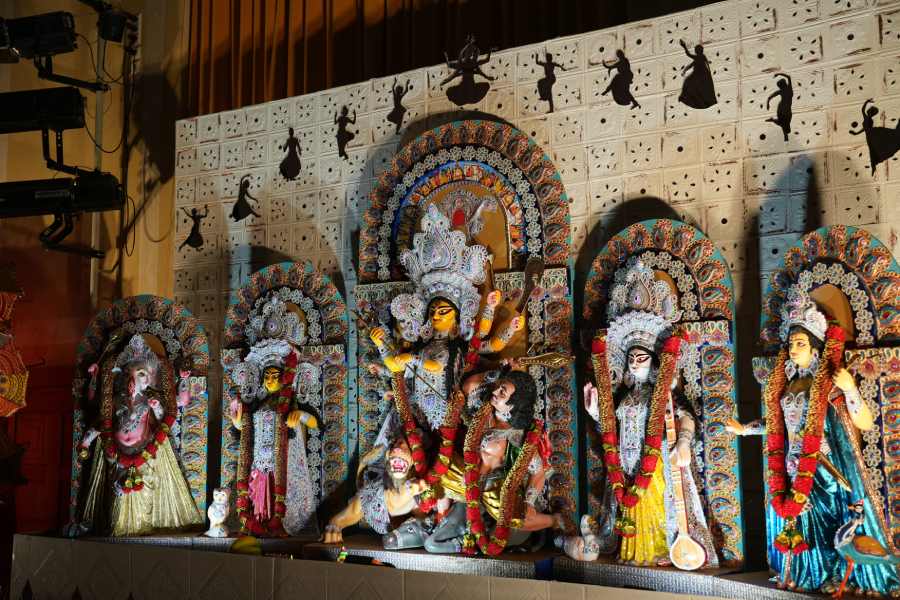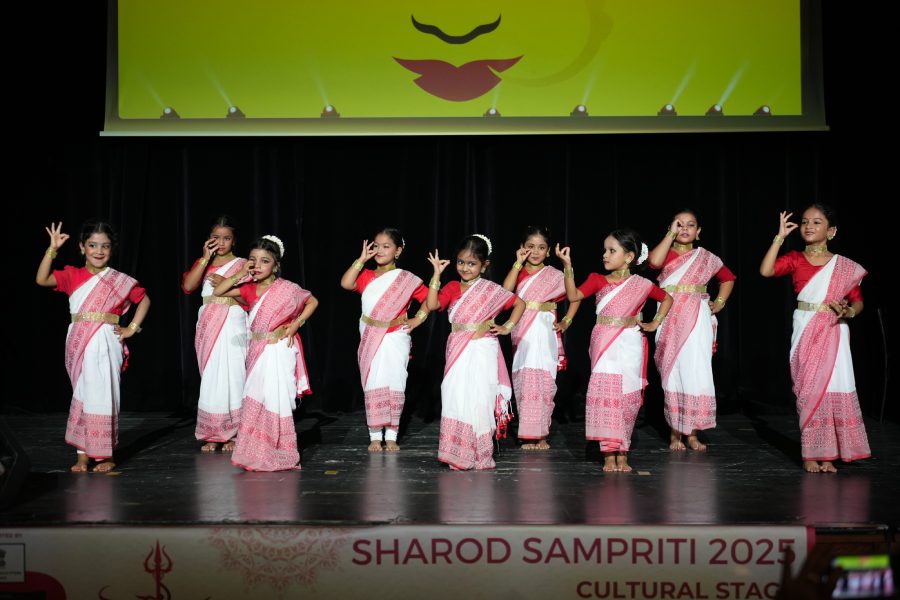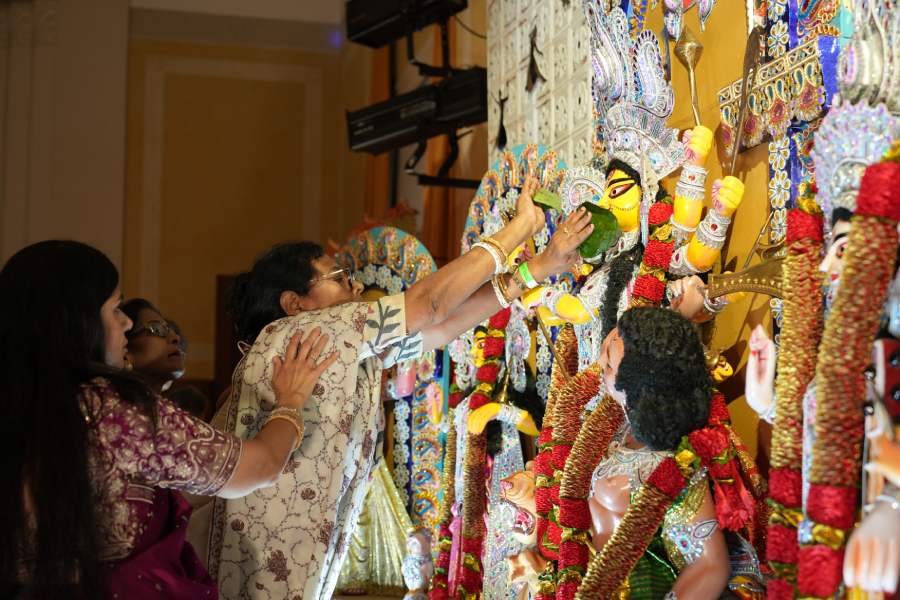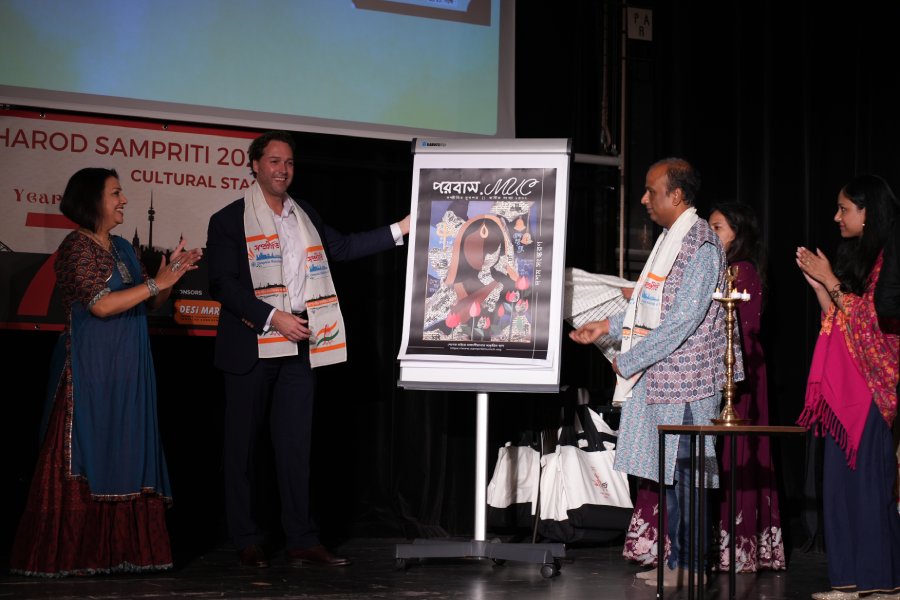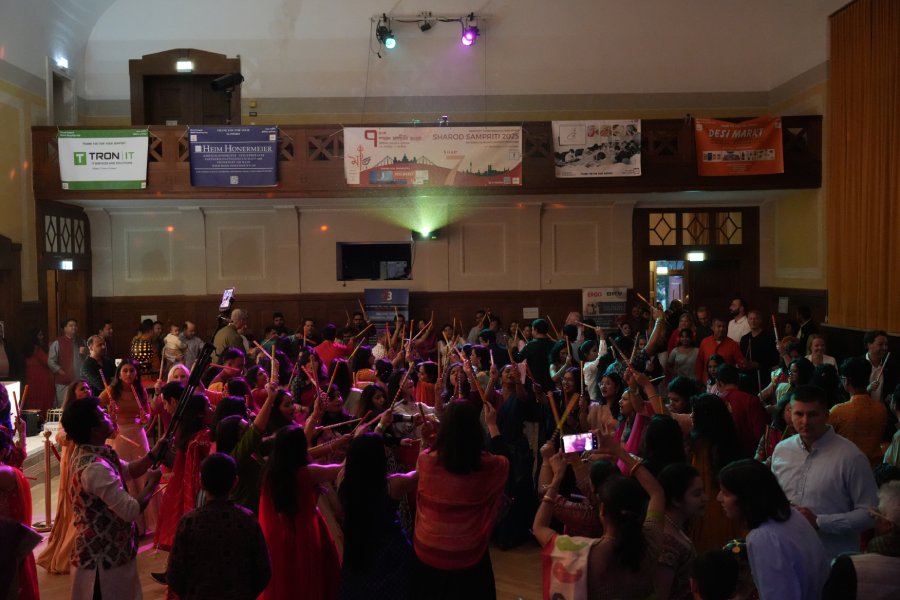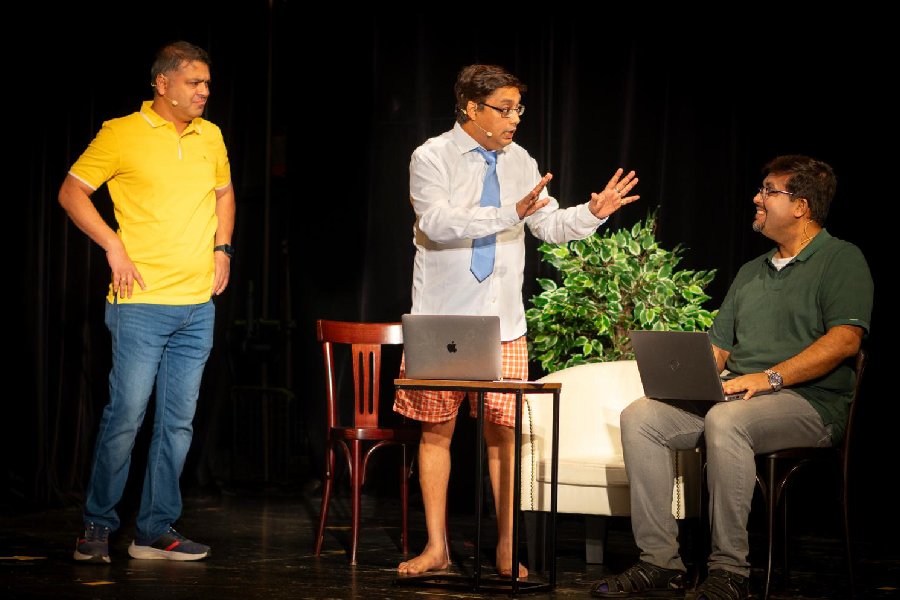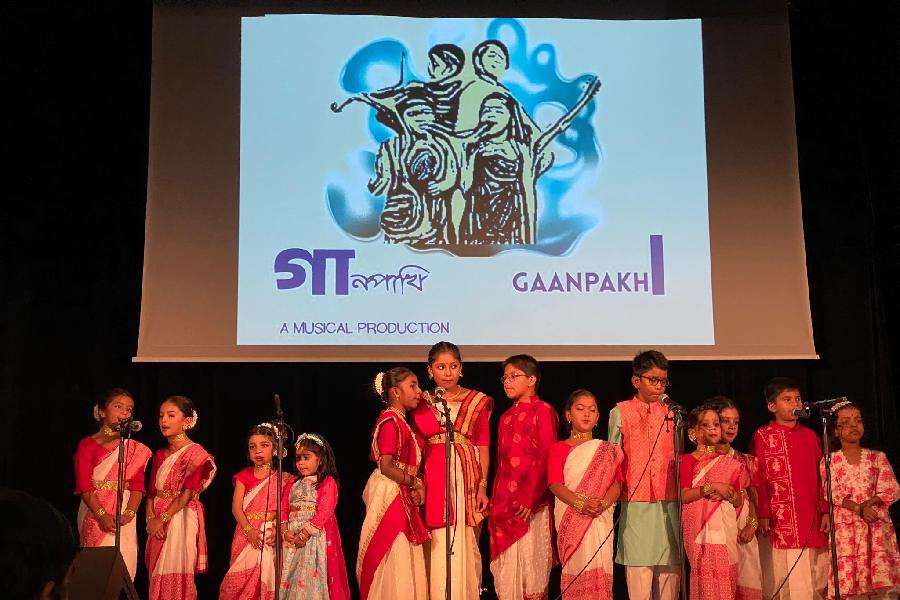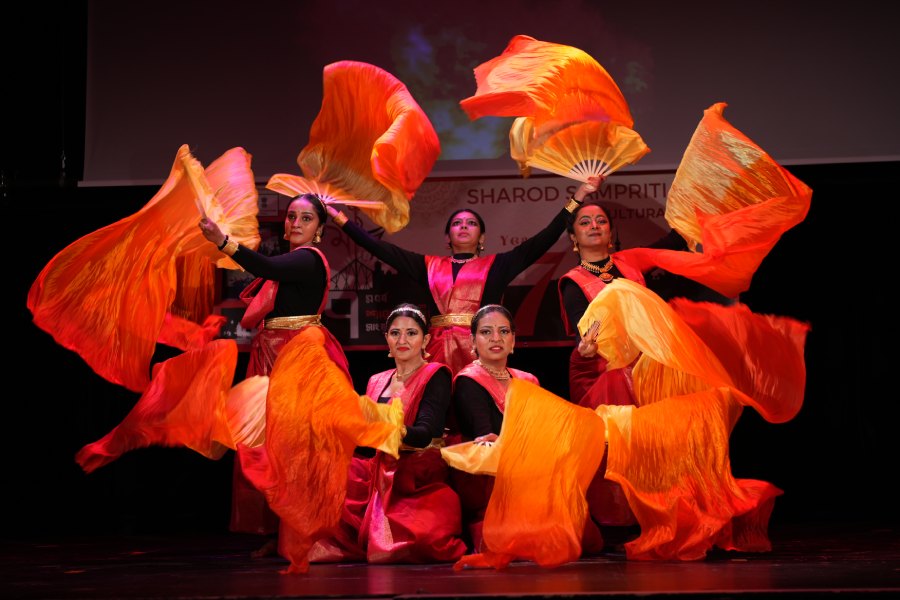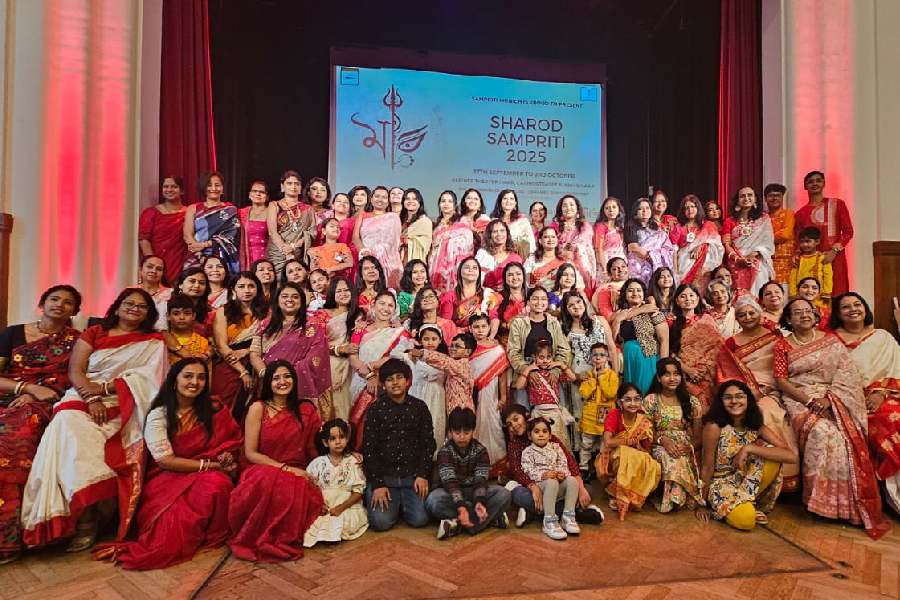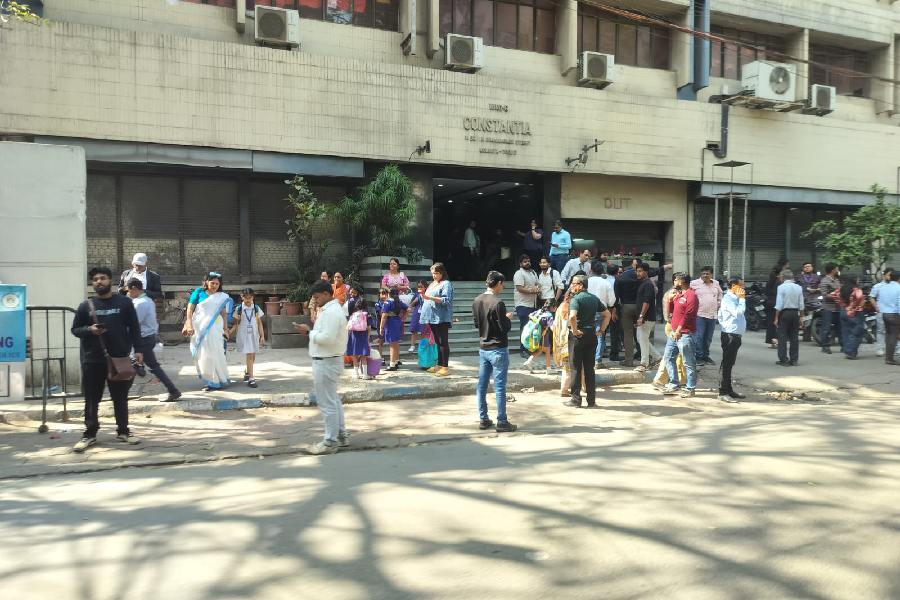Sampriti Munich marked its seventh year of Durga Puja with grandeur, joy, and a sense of community. The celebrations were held at a large heritage theatre hall built in 1912, its wooden floors and classic balcony gallery offering a beautiful mix of history and culture. Over the five festive days, rituals, performances, and shared meals brought the diaspora together in a radiant echo of home.
The Durga idol stood resplendent in intricate shola work and vibrant colours. The tableau evoked Kolkata’s pujo mandaps, transforming the Munich stage into a sacred space of artistry and devotion.
The cultural programme opened with the children’s dance on Panchami. Donned in red-and-white traditional costumes, the young performers charmed the audience, setting a joyful tone for the days ahead.
The Thakur boron on Sasthi evening carried the fragrance of home. Devotees offered bel pata and dhuno, invoking Ma Durga’s presence in a Bavarian autumn. “Amidst the rhythmic cadence of dhaak and the sacred swirl of dhuno, I found myself enveloped in nostalgia,” shared Niti Chowdhury, a new member.
The celebrations began on Sasthi with a formal inauguration. The Honourable Mayor of Haar and the Consul General of India, Munich, joined community members to launch Sampriti’s in-house magazine — a vibrant collection of travelogues, recipes and personal stories. The moment set the tone for a festival that blended tradition with cultural creativity.
Later that evening, the hall transformed into a swirling dance floor for Dandiya Night. Over 350 guests joined in, twirling sticks to rhythmic beats — a lively fusion of Gujarati tradition and Bengali Pujo spirit.
On Saptami, the men’s group took to the stage for a humorous Bollywood-themed performance that had the hall ringing with laughter. The act, part of the vibrant cultural line-up, showed how art and shared joy transcend distance.
The youngest members of the community took centre stage with a group musical performance. Dressed in traditional attire, their songs carried forward the spirit of Bengali heritage, anchoring the festival in generational continuity.
The women’s dance troupe delivered a spellbinding performance titled Elements of Nature, blending grace and power through flowing orange and yellow fans. Their synchronised choreography earned a standing ovation from the crowd.
On Dashami, the Sampriti family gathered to bring the celebrations to a close. Clad in festive saris and kurtas, the community posed together — a portrait of shared belonging forged thousands of kilometres from Bengal.
